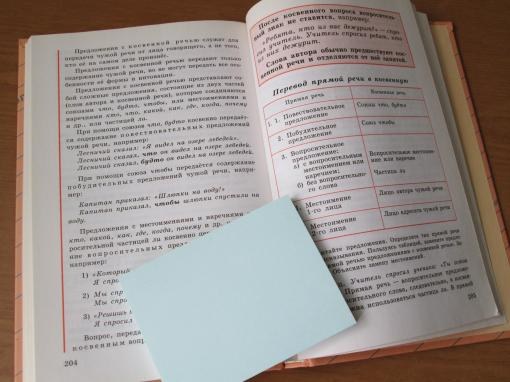Instruction
1
In our language the words of others, you can pass in several ways. With this purpose, the most commonly used direct and indirect speech. Keeping the essence of these syntax in different ways to Express the contents that are pronounced and executed in writing.
2
When the transfer of thoughts through direct speech retains all the features of the utterance remains unchanged, the content, in oral speech intonation is preserved, which letter shows the necessary punctuation. This is the most accurate way to transfer foreign words.
3
Indirect speech usually contains the gist of the thoughts of others, is informed not on behalf of the author, and the speaker without saving intonational features. In a written speech issued without the quotes in the form of complex sentence.
4
Replacing the direct speech to indirect, follow the main rules of constructing sentences accurately use forms of the individual words. Sentences with someone else's speech represented by two parts: the author and transmitted speech. In sentences with direct speech, the place of the author's words are fickle: in front, in the middle of or after the statements. Indirect, usually takes place after the author's words and is a subordinate sentence. In order to properly cope with the task to replace such syntax, act according to a certain order.
5
First, determine the boundaries of the parts of a sentence with direct speech. The author's words in the sentence with indirect speech almost always remain unchanged, they will represent the main part of the complex sentence.
6
Further note on the purpose of the statements of proposal that is part of the direct speech (it will be adventitious). If you declarative sentence, the means of communication with the main unions are the "what", "if". For example, "Witnesses claimed that (if) the accident occurred through the fault of the pedestrian." Union "to" use to transfer the content motive offers. The particle "Li" pronouns "who", "what", "what", etc., adverbs "when", "why", "where", etc. help to Express an indirect question.
7
By replacing, watch carefully for compliance with personal and possessive pronouns, the persons of verbs: they are used from the perspective of who sends them, and not on behalf of the speaker. If the direct speech was composed handling, conveying the emotions of a particle or interjection, it is necessary to take them down.
8
Look at different examples of replacement of direct speech into indirect:
• The grandmother asked the granddaughter: "would you please Bring me the glasses". The grandmother asked her granddaughter to bring her glasses.
• The taxi driver confidently said: "I'll race you to the airport in ten minutes." – The taxi driver confidently stated that will whisk us to the airport in ten minutes.
• "Come for a consultation in the second half of the day," told us a teacher of mathematics. – Math teacher announced to us that we came for consultation in the second half of the day.
• Marina asked the girlfriend: "Lena, are you going tomorrow to the theater?" Marina asked Lena whether she's going tomorrow to the theater.
• The grandmother asked the granddaughter: "would you please Bring me the glasses". The grandmother asked her granddaughter to bring her glasses.
• The taxi driver confidently said: "I'll race you to the airport in ten minutes." – The taxi driver confidently stated that will whisk us to the airport in ten minutes.
• "Come for a consultation in the second half of the day," told us a teacher of mathematics. – Math teacher announced to us that we came for consultation in the second half of the day.
• Marina asked the girlfriend: "Lena, are you going tomorrow to the theater?" Marina asked Lena whether she's going tomorrow to the theater.
Note
• Do not put a question mark if you can see indirect question.
• Designed as indirect speech quotation, enclose it in quotation marks and write with a lowercase letter.
• Designed as indirect speech quotation, enclose it in quotation marks and write with a lowercase letter.










